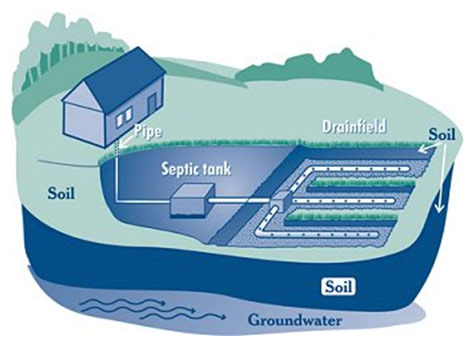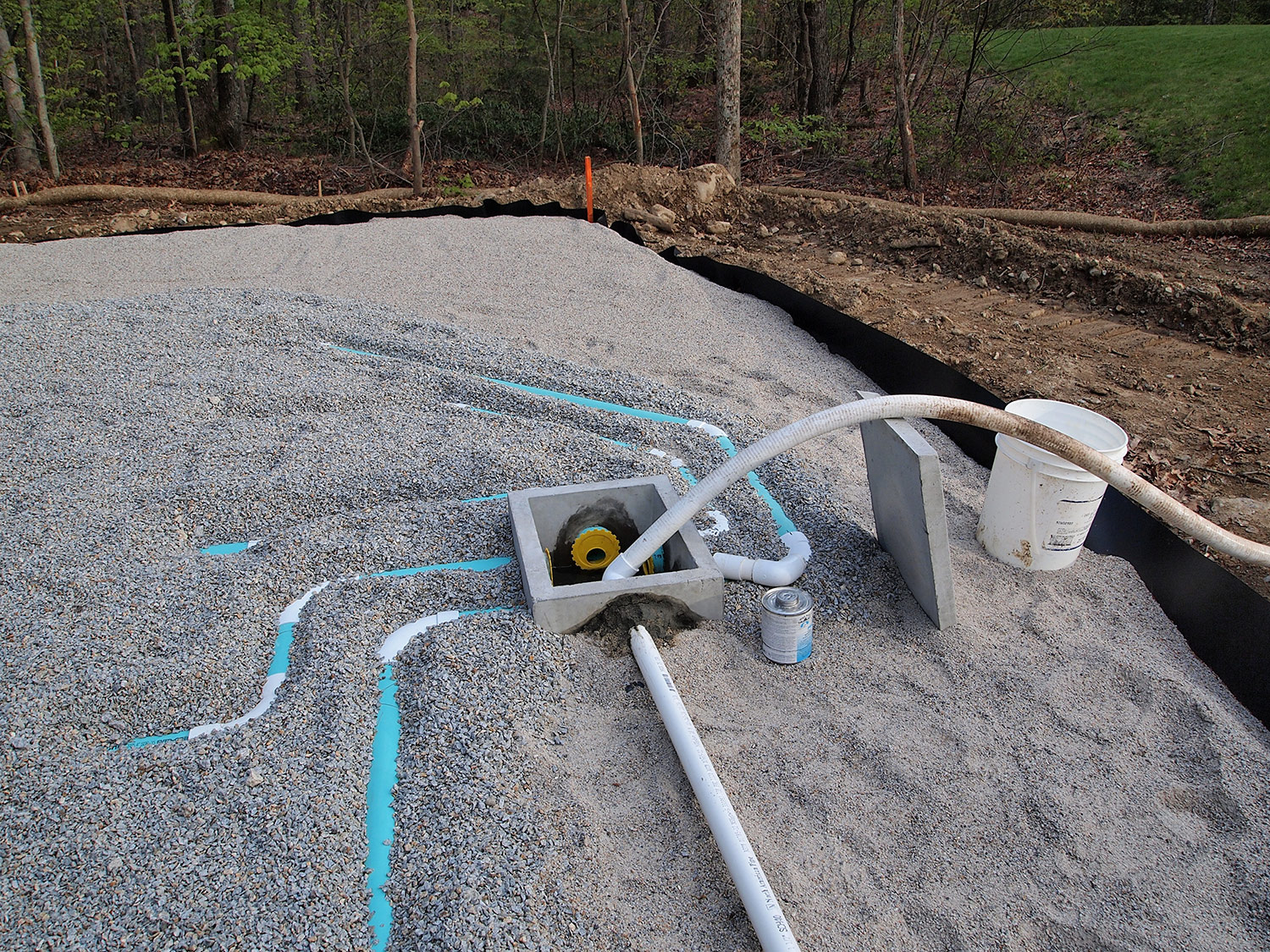
A sewer connection may be key to making your land purchase a good place on which to build a house
Found the perfect piece of land on which to build your dream home? Great! But unless you’re content to use an outhouse, you’ll want to find out whether a sewer system is available for the property, or whether you’ll need to install one.
The answer can affect not only your overall plans for the property, but your construction timeframe and budget.
Is the Property Served by a Sewer?
Question one is whether the property is already served by a sewer. (If not, you’ll need a septic system.) The easiest way to find out is to ask the seller of the land or a real estate agent, if one is involved. If there’s no one immediately available to ask, you can look for clues on your own.
If you know that municipal water is available on the property, chances are the property is also served by a sewer system. Sewer systems typically exist in areas of high population densities (due to the need to treat and dispose of large amounts of community wastewater). So, if the property is in a city, town, or a highly populated area, a public sewer system probably exists.
On the other hand, if the land must rely on a well for water, or if it’s outside of city limits, in a rural, or less populated area, you’ll probably need to install a septic system (which handles the waste water from your property only).
Also, if it’s a large, multi-acre property, (for example, land suitable for a ranch or a farm), it will probably require its own septic system.
Costs of Connecting to and Using an Existing Sewer System
If the property is served by a sewer system, things are pretty simple. Your main requirement as the land owner is to construct the connection from the new home to the main system. (In fact, you probably won’t be allowed to “go rogue” and construct your own septic, or alternative wastewater treatment system, even if you wanted to.)
If a sewer system is available, local regulations may require that you pay the sewer connection fees before a building permit is issued. Typical regulations also require that a professional contractor or plumber install the connection.
If the Property Isn’t Served by a Sewer: Regulations on Septic Systems
If you must install a septic system (because no sewer system serves the land), this will require more time and expense than simply connecting to a sewer. Because failing septics are a major source of water pollution (due to bacteria infiltrating nearby water supplies), almost all land is subject to state and local laws governing the installation and maintenance of septic systems.
Before installing a septic system, you will need to ensure that you comply with the applicable laws, first by obtaining a septic permit, probably from the county in which the land is located. A site evaluation is usually required before a septic permit can be issued. Most site evaluations must include a topography assessment, as well as a soils test (including a percolation or “perc” test). These can be completed by the local health department or a licensed site evaluator or engineering firm.
What the Site Evaluation Will Tell You
The results of the site evaluation will determine whether you can build a conventional (gravity-fed) septic system or whether an alternative system will be required. Alternative septic systems are essentially modifications of conventional septic systems, specifically engineered to work with the soils and topography found on a particular property.
If the results of the site evaluation show that your land is unsuitable for a conventional septic system, an engineer or septic design professional must design an alternative system. For example, if the property has a high water table, a sand or mound system might be recommended and designed, or if soil permeability is an issue, a pump system might be an alternative.
Unlike conventional septic systems (which typically cost $3,000-$5,000 to install), alternative systems can sometimes cost up to $40,000. This is on top of the cost of hiring the professional to perform or review a site evaluation and draft the septic design.
Make Sure You Have Enough Room Left for the Home
Septic regulations also govern where on the property the septic system can be installed. Septic systems must be set back a certain distance from wells and other water sources, as well as from roads, driveways, buildings, other improvements, and property lines.
These restrictions might severely impact where you can build your home. You must ensure that there will be enough room to install the septic system in a suitable location, in addition to a well (if necessary), and still have room to build the size of home you desire in an acceptable location.
For more information, contact Morse Engineering and Construction.
Source: nolo.com



